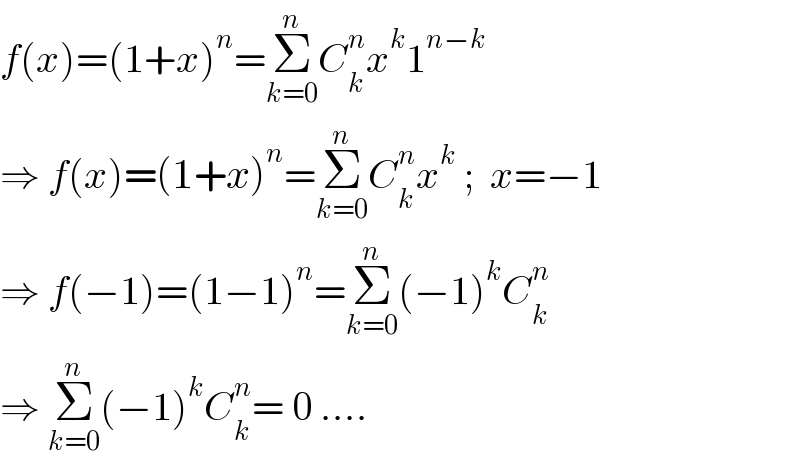
Question and Answers Forum
Previous in Permutation and Combination Next in Permutation and Combination
Question Number 156979 by cortano last updated on 18/Oct/21

Commented by cortano last updated on 18/Oct/21

Commented by cortano last updated on 18/Oct/21

Answered by FongXD last updated on 18/Oct/21

Answered by puissant last updated on 18/Oct/21

